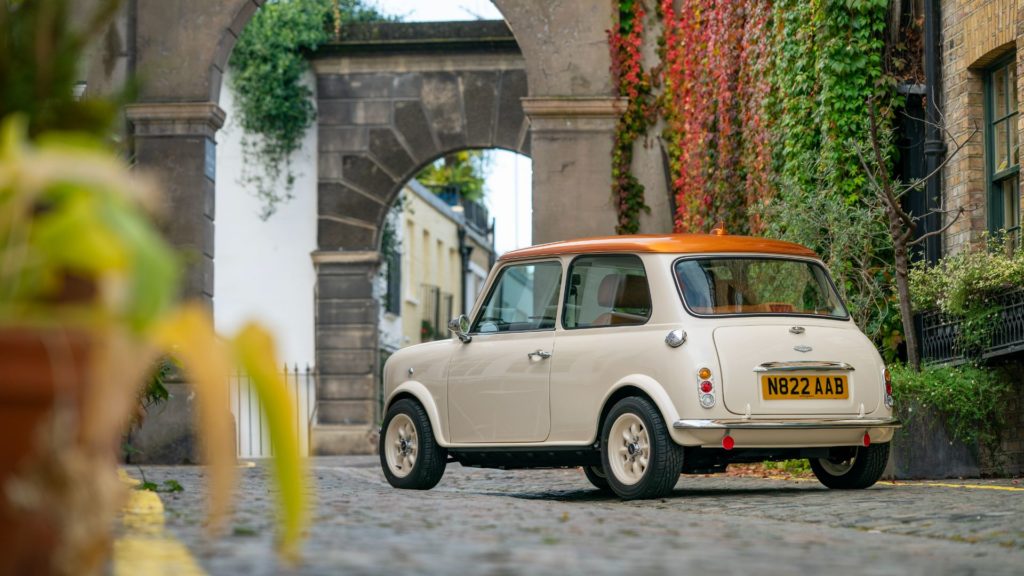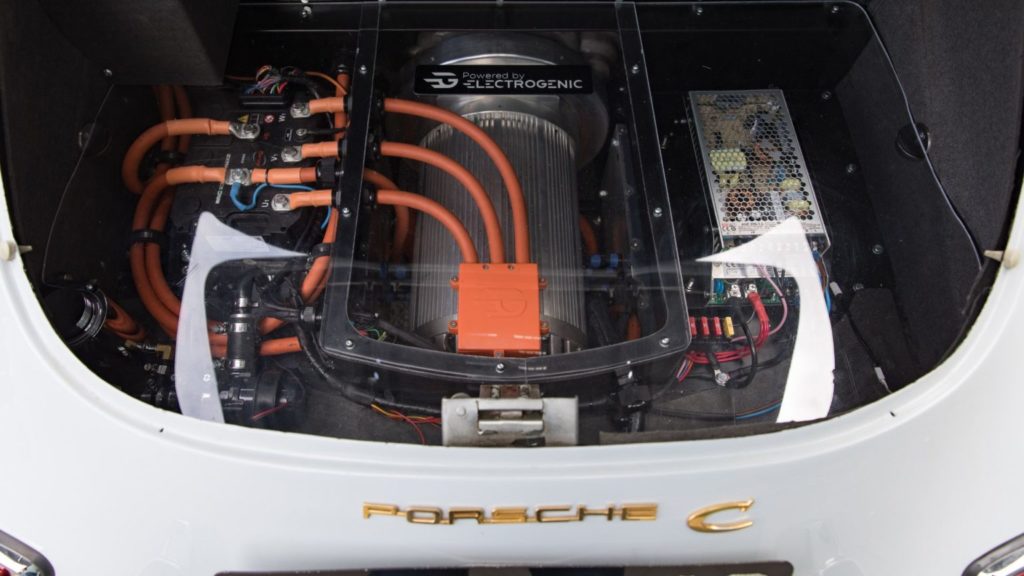There’s a very simple answer to this question: it’s entirely up to you. There are a number of well-established companies that can convert your classic car to electric power. So if you have the desire and the funds, by all means go for it.
We have driven a handful of electric restomods for our sister site, Motoring Research: everything from a David Brown Mini eMastered to a Bentley S2 Continental by Lunaz. The first thing that strikes you is the cost of an electrified classic car. Prices for the Mini start from £150,000, while the Bentley is a cool £500,000 – including the donor vehicle and a bare-metal restoration to better-than-new condition.
Not cheap, then, but it’s worth remembering that new electric cars are more expensive than their petrol and diesel counterparts. Take the Vauxhall Corsa: you can buy one with a petrol engine for less than £20,000. Yet the electric version starts from £32,500 and tops out at £37,000. That’s a lot of cash for a small car.
Even so, the process of converting a classic car to electric power doesn’t provide a more affordable alternative. On the contrary, you’ll need the equivalent of a new Corsa Electric if you want a company to convert a car on your behalf. And that’s likely to be just the start…
Think you can do the job at home? Think twice. A DIY EV conversion requires knowledge and expertise beyond the realms of most home mechanics, not to mention the significant safety considerations of working with high-voltage electrics. A specialist such as Electrogenic will handle all of this, plus the paperwork required to make the car road-legal.
Why converting a classic car to electric is a good idea

If you love cars, you’re probably guilty of getting misty-eyed over a classic, failing to remember the mornings when it refused to start or that time it broke down on the inner ring road. Perhaps you’ve also forgotten the terminal rust in the sills, or the time you spent scouring the internet for an unobtanium part?
Don’t get us wrong, we’re as guilty as the next car enthusiast. But the fact remains: a classic car requires time and effort to keep on the road. And keeping cars alive is getting more expensive, even if yours is old enough to qualify for free road tax (VED).
There’s also the prospect of higher taxation, increasing fuel costs and the banning of classic cars from towns and cities. It’s only going to get more difficult to own and run an older car. An electric conversion might be the best way to keep it on the road.
A classic car converted by a company that knows what it’s doing can be a joy to drive. Writing about the Lunaz Bentley, our Tim Pitt said: ‘Electric cars can feel dull and one-dimensional, like white goods on wheels. Not in this case. Sitting up at SUV-height, behind a huge and spindly Bakelite wheel, with its long bonnet stretching into the middle distance, the Bentley exudes a solemn gravitas and palpable sense of occasion.’
Tim was similarly enamoured with the David Brown Mini eMastered. He said “it feels tailor-made for the urban slog… while its diminutive size makes parking a doddle. You don’t need to worry about the ULEZ charge, either.”
Why converting a classic car to electric is a bad idea

The case against converting a classic car to electric is built primarily on emotional rather than rational thought. A car’s engine is part of its character, so its removal can feel like robbing it of its soul. Particularly when that engine is something like a Porsche flat-six. The way it delivers its performance, the noise it makes when downshifting through the gears, and the wail of the exhaust when you drive through the tunnel – all these elements are lost when you convert to electric power.
The counter argument is an electric powertrain can potentially make a classic car much faster. It’s like treating the vehicle to a heart transplant. Electric cars are known for their rapid acceleration, so your humble hatchback or sluggish saloon could become something that rivals a Tesla in the traffic light Grand Prix.
But there’s no doubt that converting a classic car would be considered sacrilegious in some quarters. If the classic car is rare, historically significant or in perfect condition, it’s probably worth leaving it alone. You could also find that a once-valuable classic car is worth significantly less with an electric motor under the bonnet. Even if it cost an arm and a leg to convert.
The environmental argument for electrifying a classic also seems shaky, given the quantity of raw materials required, particularly within the battery pack, and the relatively small mileages these cars tend to cover. EVs are more socially acceptable in certain circles, however.
Those are our thoughts on the subject, but there isn’t really a right or wrong answer here. The technology is available and there is a ready supply of classic cars to choose from, any of which can be converted to electric power. The choice is yours.
ALSO READ:
Porsche 356 EV by Electrogenic review
Frontline LE60 and BEE GT: V8 and electric MG restomods driven


A.I Create & Sell Unlimited Audiobooks to 2.3 Million Users – https://ext-opp.com/ECCO